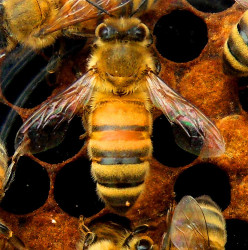Syngenta Requests EU Retract Neoniconitoid Proposal

Syngenta requested that the European Commission retract its proposal to restrict the use of neonicotinoid technology, saying the European Food Safety Authority’s (EFSA) report on the risks to bees from the chemicals’ use was “fundamentally flawed.”
Syngenta released a statement claiming that EFSA – Europe’s food safety watchdog – failed to consider key information proving the safety of thiamethoxam seed treatment for use on crops such as oilseed rape and sunflower.
Thiamethoxam is the active ingredient in the company’s Helix XTra and Cruiser seed treatments, and is one of the neoniconitoid insecticides EFSA warned last month pose an “acute risk” to bees.
The report prompted the Commission to propose a two-year ban on imidacloprid, thiamethoxam and clothianidin on maize, oil seed rape, sunflowers, cotton and cereals (except for winter cereals). How European Union member states will treat the proposal is still unclear.
“Further review has now shown that EFSA based its assessment on unrealistic and excessive seed planting rates between two and four times higher than would be used under modern agricultural practice,” Syngenta said, adding that had EFSA used “normal sowing rates,” it would have concluded that the risk to bees is extremely low.
Syngenta’s Chief Operating Officer, John Atkin, said: “The European Commission has been using this flawed EFSA report to justify proposed restrictions on this technology. These latest findings undermine the basis for such action, which would bring considerable economic harm to growers and absolutely no benefit to bees. The European Commission must halt the current process and undertake a comprehensive review to identify the true risks to bee health.”





